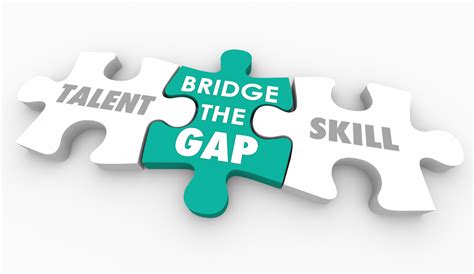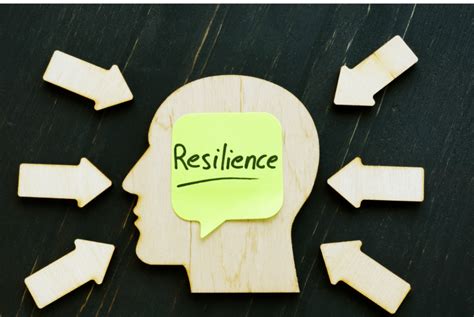Are you ready to step out of your comfort zone and embark on a journey towards a more rewarding and meaningful career? Life is full of opportunities waiting to be explored, and sometimes, all it takes is a little courage to dare to follow your dreams. Whether you have been considering a career change for a while or have recently discovered a passion that ignites your soul, now is the perfect time to start exploring the endless possibilities that lie ahead.
Unveiling the Path: Adapting to change can be intimidating, but it is through embracing new challenges that we grow and discover our true potential. By daring to pursue a career change, you open yourself up to a world of exciting prospects and uncharted territories. This journey of self-exploration and personal development offers a unique opportunity to align your passions and skills, creating a harmonious balance between professional satisfaction and personal fulfillment.
Shattering the Limitations: Many of us find comfort in the familiar, content with the routine and security that our current career provides. However, true growth and fulfillment often lie beyond the boundaries of what we know. By daring to dream and explore the possibilities of a career change, you allow yourself to break free from the limitations that prevent you from reaching your full potential. Embracing the unknown can be daunting, but it is also exhilarating, as it enables you to challenge yourself, grow in new directions, and create a life that truly reflects your passions and values.
Building a Solid Foundation: Embarking on a new career path requires careful planning and preparation. It is essential to equip yourself with the necessary knowledge and skills to make a successful transition. Researching different industries, networking with professionals, and seeking guidance from career experts can provide valuable insights and guidance. By building a solid foundation of information and support, you can approach your career change with confidence and navigate the challenges that may arise along the way.
Transforming Challenges into Opportunities: Career change is not without its obstacles, but it is the ability to adapt and overcome these challenges that leads to growth and transformation. The journey towards a new career may involve stepping out of your comfort zone, acquiring new skills, or even taking a temporary step back. However, each hurdle presents an opportunity for personal and professional development, carving a path towards a more fulfilling and rewarding future.
So, are you ready to take that leap of faith and explore the limitless possibilities that await you? Embrace the courage within, trust in your abilities, and dare to dream of a career that both excites and fulfills your life's purpose. The journey may be challenging, but the rewards are immeasurable. Begin your exploration today, and let your aspirations guide you towards a future brimming with potential and self-discovery.
Unlocking Your Untapped Potential: The Benefits of Transitioning Careers

Have you ever wondered what lies beyond the confines of your current professional path? Embarking on a new career journey can be a courageous decision, allowing you to unleash your hidden potential and explore uncharted territories. But why should you consider changing careers in the first place?
In our increasingly dynamic and interconnected world, the old adage of "staying in your lane" no longer holds true. Transitioning careers can open doors to exciting opportunities that may have previously been unimaginable. It offers a chance to break free from the limitations of routine and embark on a journey of personal evolution and growth.
By daring to take the leap, you can discover new passions, talents, and skills that were previously untapped. Changing careers allows you to challenge yourself, learn new perspectives, and broaden your horizons. It provides a chance for self-discovery and the fulfillment of dreams that may have been deferred or overlooked.
Moreover, transitioning careers can empower you to embrace your truest self. It offers an avenue to align your work with your values, aspirations, and innate skills. By pursuing a career that resonates with your passions and interests, you can find renewed purpose and motivation in your professional life.
| Benefits of Changing Careers: |
| 1. Opportunity for growth: Transitioning careers exposes you to new challenges and learning experiences, fostering personal and professional growth. |
| 2. Increased fulfillment: Pursuing a career that aligns with your passions can bring a newfound sense of purpose and fulfillment. |
| 3. Expanded skill set: Changing careers allows you to develop new skills and broaden your knowledge base, increasing your versatility and marketability. |
| 4. Exploration of untapped potential: Transitioning careers provides an opportunity to unleash your hidden talents and explore undiscovered passions. |
| 5. Alignment with values: Choosing a career that aligns with your core values can bring a sense of authenticity and fulfillment to your professional life. |
Transitioning careers may seem daunting, but the rewards of embracing change and seeking new professional paths can be immeasurable. As you embark on this transformative journey, remember that you have the power to redefine your future, unlock new possibilities, and realize your untapped potential.
Assessing Your Skills and Interests: Discovering Your Passion
When considering a potential career change, one crucial step is to assess your skills and interests to find your true passion. This section will guide you through the process of exploring and identifying your unique talents, abilities, and aptitudes, allowing you to make informed decisions about your future career path. By gaining a deeper understanding of what truly motivates and excites you, you can discover new opportunities that align with your passions.
In order to assess your skills and interests effectively, it is important to reflect on both your professional and personal experiences. Consider the tasks you enjoy and excel at, as well as the ones you find mundane or uninteresting. Take note of any recurring patterns or themes that emerge, as they can provide valuable insights into the areas where your true passion lies.
Another useful tool for assessing your skills and interests is conducting a self-assessment questionnaire or survey. This allows you to objectively evaluate your strengths, weaknesses, values, and preferences. By answering thought-provoking questions, you can uncover hidden talents or interests that you may not have been aware of before.
Skills Assessment
| Interests Assessment
|
By combining self-reflection, self-assessment tools, and careful consideration of your interests and skills, you can uncover your true passion and gain clarity on potential career paths that align with it. Remember, finding a career that ignites your passion can lead to greater job satisfaction, personal fulfillment, and long-term success.
Overcoming Fears and Doubts: Embracing the Unknown

When considering a journey towards new experiences and possibilities, it is natural to be confronted with fears and doubts. Venturing into uncharted territory can be intimidating, as it involves stepping out of our comfort zones and embracing the unknown.
The human mind tends to gravitate towards familiarity and predictability, seeking stability and security. However, true growth and fulfillment often lie outside the boundaries of what we already know. By overcoming fears and doubts, we open ourselves up to exciting opportunities and the potential for a rewarding career change.
| Confronting the Fear of Failure | One common fear that often holds individuals back from exploring new career paths is the fear of failure. We may worry about the possibility of not succeeding or making mistakes along the way. However, it is important to remember that failure is not a sign of weakness, but rather an essential part of the learning process. Embracing failure as an opportunity for growth can help us overcome this fear and unlock our potential. |
| Dealing with Self-Doubt | Self-doubt can also be a significant barrier when it comes to embracing the unknown. We may question our abilities, qualifications, or our capacity to adapt to new challenges. It is crucial to challenge these doubts and remind ourselves of our strengths and past achievements. Developing a positive mindset and seeking support from mentors or career counselors can provide the encouragement needed to overcome self-doubt and move forward with confidence. |
| Embracing Uncertainty for Personal Growth | Embracing the unknown entails embracing uncertainty. While uncertainty can feel unsettling, it also offers the opportunity for personal growth and self-discovery. Stepping into a new career path allows us to explore our hidden talents, learn new skills, and broaden our horizons. By embracing uncertainty and being open to unexpected outcomes, we can unlock our full potential and reach new heights in our professional lives. |
Overcoming fears and doubts is not an easy task, but the rewards of embracing the unknown are worth the effort. It is through taking risks and pushing past our comfort zones that we can truly discover our passions and find career paths that align with our values and aspirations. So, dare to let go of fears, embrace the unknown, and embark on an exciting journey of career change and personal growth.
Exploring Prospective Industries: Analyzing the Job Market Landscape
When considering a career change, one crucial step is to thoroughly research the job market and identify industries that show promising growth and opportunities. This section delves into the importance of conducting comprehensive research and provides insights on how to identify prospective industries that align with your skills, interests, and goals.
- Stay abreast with current trends and emerging sectors.
- Look for industries experiencing substantial growth and demand.
- Consider your skills and interests in relation to industry requirements.
- Explore professional networks and seek advice from industry experts.
- Utilize online resources and job market databases to gather information.
- Assess the stability and sustainability of industries in the long term.
- Take note of industries that offer transferable skills and diverse opportunities.
- Evaluate the potential for career progression and advancement.
By thoroughly researching the job market and identifying promising industries, you can gain valuable insights and make informed decisions about your career change. This will enable you to pursue new opportunities that align with your aspirations and maximize your chances of long-term success and fulfillment.
Expanding Your Skill Set: Bridging the Knowledge Gap

As individuals, we constantly strive for personal and professional growth. In the face of career transitions, it becomes crucial to acquire new skills and knowledge to successfully navigate the changing landscape. This section explores the importance of acquiring these skills and offers insights on how to bridge the knowledge gap.
Embracing Lifelong Learning:
In today's rapidly evolving job market, it is essential to embrace lifelong learning. The acquisition of new skills not only enhances career prospects but also broadens our horizons. Whether it's gaining technical expertise or developing soft skills, continuous learning enables us to adapt and excel in diverse professional environments.
Identifying Industry Demand:
Before embarking on a career change, it is crucial to research and identify the skills that are in demand in the industry of interest. By understanding the current trends and upskilling accordingly, individuals can position themselves as valuable assets to prospective employers.
Exploring Training and Educational Opportunities:
There are various avenues to acquire new skills and knowledge. This includes pursuing formal education, attending workshops, enrolling in online courses, or participating in industry-specific training programs. These opportunities not only provide structured learning but also help individuals stay updated with the latest advancements in their desired field.
Building a Support Network:
Transitioning to a new career can be daunting, but having a support network can make the journey more manageable. Connecting with like-minded individuals, mentors, or industry professionals can provide valuable insights, guidance, and encouragement along the way.
Cultivating a Growth Mindset:
A growth mindset is vital when acquiring new skills. Embracing challenges, seeking feedback, and persisting through setbacks are crucial elements of this mindset. By fostering a belief in one's ability to learn and improve, individuals can overcome obstacles and achieve their career aspirations.
Putting Knowledge into Practice:
Acquiring new skills is only the first step. Putting that knowledge into practice is equally important. Actively seeking opportunities to apply newly acquired skills through internships, projects, or volunteering can solidify learning and demonstrate proficiency to future employers.
Embracing the journey of acquiring new skills and bridging the knowledge gap is an empowering step towards career success and personal fulfillment. By recognizing the importance of continuous learning, adapting to industry demands, and utilizing available resources, individuals can confidently navigate career change and explore new professional horizons.
Strategies for Building Meaningful Connections in an Uncharted Territory
When embarking on a new professional journey, establishing a strong network in the target industry is crucial for success. In the realm of career transitions, the ability to develop connections in an unfamiliar field can open doors to various opportunities. This section aims to explore effective networking strategies that can help individuals build meaningful relationships and expand their professional support system in a different industry.
Evaluating Financial Considerations: Strategize Your Transition

Before embarking on a potential career change, it is crucial to carefully evaluate the financial aspects associated with such a move. Understanding and managing the financial considerations can help you plan your transition effectively and ensure a smooth shift towards your desired career path.
One of the critical aspects to consider when evaluating financial considerations is assessing your current financial situation. Take time to review your current income, savings, expenses, and any outstanding debts or financial obligations. This holistic evaluation will provide you with a realistic picture of your financial stability and enable you to strategize your transition accordingly.
Next, explore the potential financial implications of the career change you are considering. Research the average salary range and job prospects in your desired field. Identify the qualifications, skills, and experience required, as these factors can significantly impact your future earning potential. Additionally, consider the potential for career growth and advancement within the new field, as this can influence your long-term financial prospects.
Creating a detailed budget is essential to assess the financial feasibility of your career change. Factor in the potential changes in income and expenses that may accompany the transition. Consider any additional costs such as education or training expenses, certifications, licensing fees, or potential relocation costs. By quantifying these aspects, you can make informed decisions and develop a financial plan for your career transition.
- Review your current financial situation
- Research potential financial implications of the career change
- Create a detailed budget, accounting for new income and expenses
- Consider additional costs associated with the transition process
It is important to keep in mind that a career change may involve temporary financial adjustments. Be prepared for potential fluctuations in income or additional investments required to build your new career. Developing a financial contingency plan and setting realistic expectations will help you navigate the transition period with confidence.
Lastly, seek professional advice if necessary. Consulting with a financial advisor or career counselor can provide valuable insights and guidance throughout the evaluation process. They can help you analyze your financial situation and make informed decisions aligned with your career goals.
In summary, evaluating financial considerations is an integral part of planning your career change. By assessing your current financial situation, understanding the potential financial implications, creating a detailed budget, considering additional costs, and seeking professional advice, you can effectively strategize your transition and work towards achieving your dream career.
Taking the Plunge: Steps to Transitioning Careers
Introduction: Embarking on a new professional path can be daunting but rewarding. Transitioning careers requires careful planning, self-reflection, and a willingness to embrace change. This section explores the practical steps and considerations one must undertake to successfully navigate the journey of transitioning from one career to another.
1. Self-Assessment:
Before taking the leap, it is crucial to conduct an honest self-assessment. Reflect on your skills, strengths, and weaknesses, as well as your personal and professional values. Consider what truly motivates and fulfills you, and explore how these aspects align with potential new career paths. Identifying transferable skills and areas for development will provide clarity and guide your decision-making process.
2. Research & Exploration:
Thoroughly researching and exploring different career options is essential during a career transition. Investigate the industries, roles, and positions that align with your interests and skillsets. Speak with professionals already working in those fields, attend industry events, and engage in informational interviews to gain insights and gather firsthand experiences. Building a network within your desired industry will help you make informed decisions and uncover hidden opportunities.
3. Upskilling & Education:
Depending on the chosen career path, acquiring new skills or furthering your education may be necessary. Investigate the requirements and qualifications for your desired role and determine if additional certifications, degrees, or training are needed. Take advantage of online courses, workshops, or professional development opportunities to upgrade your expertise and stay current in your chosen field.
4. Crafting a Targeted Resume:
Reworking your resume to highlight relevant skills and experiences is essential when transitioning careers. Emphasize transferable skills and achievements that demonstrate your ability to adapt and thrive in a new environment. Tailor your resume to each role you apply for, showcasing how your previous experiences can contribute to future success in the new career.
5. Networking & Job Searching:
Networking is a valuable tool when changing careers. Leverage your existing connections and actively seek out new ones through professional associations, social media platforms, and networking events. Inform your network about your career transition to uncover potential job opportunities or receive referrals. Additionally, utilize online job boards and industry-specific websites to search for openings carefully. Stay persistent and proactive throughout the job search process.
6. Embracing the Transition:
Transitioning careers often involves stepping out of your comfort zone and challenging yourself. Embrace the new journey with confidence and a growth mindset. Understand that setbacks and rejections are part of the process, but they should not deter you from pursuing your dream career. Stay resilient, adapt to changes, and actively seek feedback to continuously improve and thrive in your new professional path.
Conclusion:
Navigating a career transition requires careful planning, self-reflection, and determination. By following these steps and embracing the challenges along the way, you can successfully pivot into a new career that aligns with your passions and goals. Remember, the journey may be challenging, but the rewards of finding career fulfillment are immeasurable.
Managing Setbacks and Challenges: Staying Resilient

When navigating a career change journey, setbacks and challenges are bound to arise. It is crucial to develop resilience and effectively manage these obstacles in order to maintain progress and stay motivated towards achieving your desired career goals.
One key aspect of managing setbacks is acknowledging and accepting that they are a natural part of any process involving change and growth. Instead of viewing setbacks as failures, it is important to reframe them as learning opportunities. Embracing the mindset of continuous learning and improvement can enable you to extract valuable lessons from setbacks and apply them to enhance your future career endeavors.
Another crucial element in managing setbacks is maintaining a positive attitude and mindset. It is not uncommon to encounter difficulties or face rejection during a career change. However, developing resilience allows you to bounce back from setbacks and view challenges as stepping stones towards personal and professional growth. Cultivating a positive outlook empowers you to overcome obstacles and persevere despite the obstacles that may arise.
| Strategies for Managing Setbacks and Challenges |
|---|
| 1. Seek Support: Build a strong network of mentors, friends, or colleagues who can provide guidance and encouragement during challenging times. |
| 2. Embrace Adaptability: Be open to adjusting your approach and exploring alternative paths when faced with unexpected setbacks or changes. |
| 3. Reflect and Learn: Take time to reflect on setbacks and identify areas for improvement. Use this self-reflection to adapt your strategies and enhance your skills. |
| 4. Practice Self-Care: Prioritize self-care and maintain a healthy work-life balance to ensure physical and emotional well-being during challenging times. |
| 5. Set Realistic Goals: Break down your career change into small, achievable goals. Celebrate each milestone to stay motivated and resilient. |
By managing setbacks and challenges with resilience and a positive mindset, you are better equipped to navigate the twists and turns of your career change journey. Embrace the opportunities for growth that setbacks present, and stay focused on your ultimate career aspirations.
Celebrating Achievements: Flourishing in Your Fresh Path
Embracing new beginnings can lead to remarkable milestones in one's professional journey. This section is devoted to celebrating the triumphs that come with navigating through unfamiliar terrain and excelling in a different occupational route. It encompasses the joy and satisfaction that arise from discovering new strengths, broadening horizons, and achieving success in a chosen endeavor.
In this stage of your career metamorphosis, it is crucial to appreciate the value of perseverance and resilience. Transitioning into a fresh professional role can be challenging, and yet, it presents an opportunity for growth, self-discovery, and reaching new heights. This section highlights the importance of acknowledging and celebrating the milestones you have achieved along the way, both big and small.
One of the significant factors contributing to the flourishing of your new career is the ability to adapt to change. As you venture into uncharted territory, it is essential to cultivate a mindset of flexibility and openness. This section explores the strategies and techniques that can help you embrace change gracefully, enabling you to thrive in your chosen path.
Furthermore, connecting with like-minded individuals and building a strong support network can enhance your prospects of sustained success. This section draws attention to the importance of engaging with professional communities, mentors, and peers who can provide guidance, inspiration, and valuable insights. Celebrating achievements becomes even more meaningful when shared with those who understand and appreciate the journey.
| Key Points to Explore | Guiding Questions |
|---|---|
| Recognizing and celebrating milestones | How do you define success in your new career? What are some significant achievements you have reached so far? |
| The power of resilience and perseverance | How have you overcome challenges and obstacles in your career change journey? What have you learned from these experiences? |
| Embracing change and cultivating adaptability | What strategies have you employed to navigate through changes in your new professional path? How have these adaptations contributed to your growth? |
| The influence of a supportive network | How has connecting with others in your field impacted your career success? What role do mentors and peers play in your professional growth? |
This section celebrates the achievements that come with embarking on a new career, emphasizing the importance of recognizing milestones, embracing change, and nurturing a supportive network. It serves as a reminder that success is not only measured by the destination but also by the transformative journey taken to reach it.
FAQ
Is it possible to change careers later in life?
Yes, it is definitely possible to change careers later in life. Many people choose to change careers for various reasons such as seeking new challenges or pursuing their true passions. It may require additional education or training, but with dedication and determination, anyone can successfully transition into a new career.
What are some benefits of changing careers?
Changing careers can bring several benefits. Firstly, it allows individuals to pursue their true passions and interests, which often leads to greater job satisfaction. Secondly, it can provide new challenges and opportunities for personal growth and development. It can also result in improved work-life balance or increased earning potential in some cases. Overall, switching careers can bring a sense of fulfillment and happiness to individuals who were feeling unfulfilled in their previous careers.
How do I know if a career change is the right decision for me?
Deciding whether to change careers is a personal choice that requires careful consideration. It is important to assess your current level of job satisfaction, future goals, and personal interests. Consider exploring different industries and talking to professionals in the fields you are interested in. Additionally, you can take career assessment tests or work with career coaches who can guide you through the decision-making process. Ultimately, listen to your instincts and choose a path that aligns with your values and long-term aspirations.
What are some common challenges of transitioning into a new career?
Transitioning into a new career can pose several challenges. One of the main challenges is acquiring the necessary skills and qualifications for the new field, which may require additional education or training. Financial considerations, such as a potential decrease in income during the transition period, can also be a challenge for some. Additionally, the fear of the unknown and the uncertainty of starting over can create stress and anxiety. However, with proper planning, research, and support, these challenges can be overcome.



